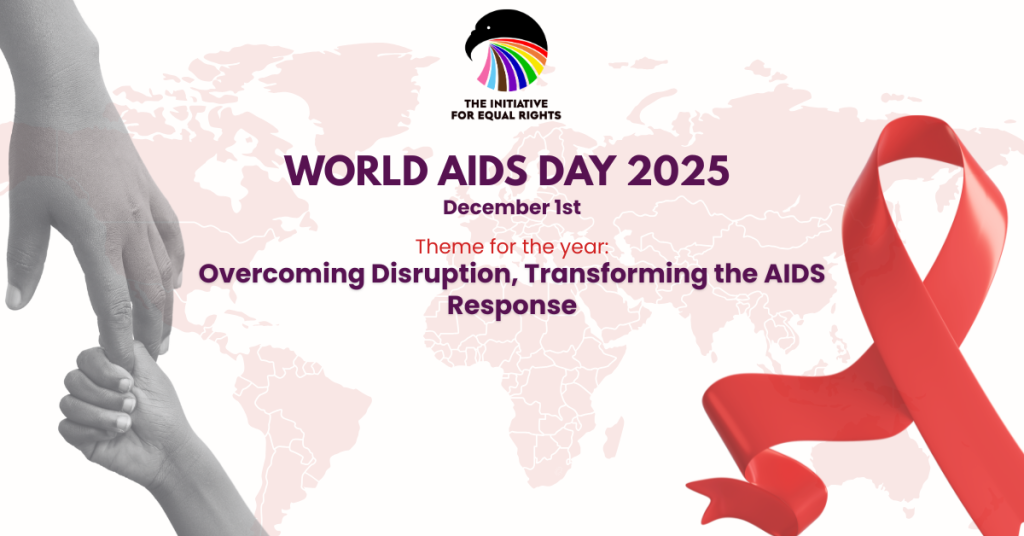Written by
Malakai Bassey
Communications Associate, TIERs
As Nigeria marks Democracy Day, the flags are greener than ever, and optimism will fill every speech and parade. However, the silence surrounding the decline of human rights in Nigeria, the destabilisation of life-saving HIV programs, and the rising momentum of organised anti-rights movements reminds us that democracy without equity is a performance.
Human Rights Violations Still Persist
Despite Nigeria’s commitment to democratic principles, serious human rights violations continue to threaten the freedoms that Democracy Day is meant to celebrate. This is especially true for queer Nigerians and those who speak out against injustice.
Sexual minority groups face harassment, blackmail, arbitrary arrests, and violence supported by the state. Although the Same-Sex Marriage (Prohibition) Act is rarely enforced through formal trials, security forces use it to justify detentions and public shaming.
Additionally, civil liberties are being eroded. Government officials often suppress press freedom by attacking or arresting journalists who cover corruption, human rights abuses, police brutality, or communal conflict.
In 2024, a popular protest song that addresses social inequality and police violence was banned from public airwaves under the justification of “protecting public decency.” Amnesty International condemned this action as clear censorship and an attack on artistic freedom. It serves as a reminder that dissent, even in cultural forms, is still controlled in Nigeria.
From queer Nigerians being silenced to artists and journalists facing consequences for holding power accountable, it is evident that democracy in Nigeria is still incomplete. Freedom of expression, identity, and association cannot be selective; they must be upheld for everyone, or they will be lost for all.
The Destabilisation of Life-Saving HIV Programs
In early 2025, the Trump administration imposed a 90-day freeze on HIV/AIDS funding, affecting essential programs across Africa, including Nigeria. Many of which provide testing, medication, and community outreach. Although presented as a pause, its effects have been disastrous for countries like Nigeria that depend on international aid for public health responses.
The Executive Director of The Initiative for Equal Rights (TIERs) weighed in on the issue, stating: “Beyond the immediate health risks, the funding freeze also jeopardises the dignity and rights of vulnerable populations. These programs often provide more than just medication; they offer support, education, and a sense of community…. Cutting off this support leaves people feeling vulnerable, isolated, and stripped of their agency.” This statement underscores the far-reaching impact of the funding cuts, shifting the conversation from purely medical concerns to broader human rights implications.
In February, the Federal Executive Council approved ₦4.8 billion to procure HIV treatment, aiming to distribute it within four months from the announcement date. Lawmakers also allocated $200 million in the 2025 budget toward vaccines and epidemic response, explicitly to fill these gaps.
Yet, questions remain: Is this funding sustainable? Can it bridge the large resource gap? Will this aid trickle down to all marginalised groups and underrepresented populations within Nigeria?
A Call to Action
What does democracy mean without inclusion? Political freedom alone is not enough. Health security, civil liberties, and the freedom to exist without persecution are also pillars of democracy. We call on the Nigerian Government to
- Develop sustainable financing for HIV treatment into national budgets.
- Repeal laws that criminalise identity or restrict access to essential medical services.
- Ensure the non-exclusion of organisations that support marginalised communities in these efforts. According to the UNAIDS 2023 factsheet, Nigeria is home to over 2 million people living with HIV. UNAIDS also reports that “there are now 2300 additional new HIV infections every day on top of the 3500 infections that were already occurring”. To reach them all, all stakeholders should be involved in the Government’s plan.
- Move beyond emergency measures and invest in long-term structures, including local drug manufacturing and universal health coverage.
- Ensure press freedom is upheld, as the liberty of the press is what truly upholds democracy and ensures accountability of all levels of government
- Shut down anti-rights sentiments and movements, as this does not represent a truly democratic government that is a signatory to various human rights treaties and agreements.
Nigeria’s Democracy Day should represent a commitment to truth, fairness, and life. We cannot celebrate today without highlighting the lives that are still at risk, the injustices, and the human rights violations that continue.
Until all Nigerians, including those from marginalized and underrepresented communities (queer, HIV-positive, disabled, poor, etc.) can share in the dream of freedom, our democracy remains only half-alive.


